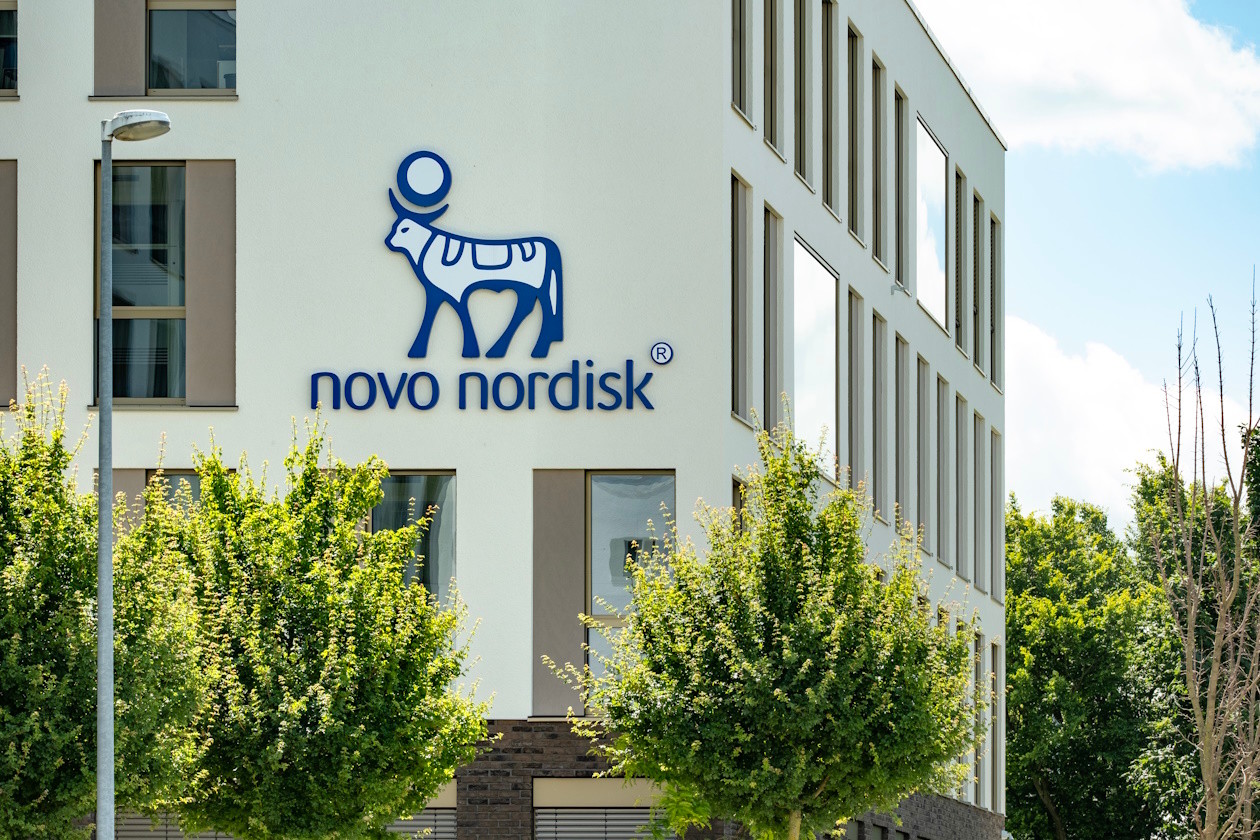In an unscheduled release Novo Nordisk has reported first half sales growth of 18% when ignoring currency. Operating profit was up 29%.
Full year guidance for sales growth has been reduced from 13-21%, to 8-14%.
The reduction is due to lower growth expectations for its diabetes and obesity injections Ozempic and Wegovy. That’s been attributed to slower market growth, increased competition and continued sales of unregulated alternatives of Wegovy in the United States.
Separately the company announced the appointment of Maziar Mike Doustdar, currently Novo’s executive vice president of International Operations, as CEO.
The shares were down 19.6% following the announcements.
Our view
Novo Nordisk’s got a new boss. Internal hires can help to provide continuity, but given the company’s recent financial and clinical disappointments, investors may have been hoping for a fresh pair of eyes to turn the ship around.
Mike Doustdar’s appointment coincided with the company’s second cut to guidance so far this year, sending the valuation sharply downwards on the day. And while he’ll be hoping to prove that bad things don’t come in threes he has plenty of challenges to grapple with.
In the United States, Novo’s been losing market share in the all-important GLP1 class of drugs for diabetes and weight loss. Competition is also starting to hold back growth in international markets. What’s more, there have been some research and development disappointments, which have weighed heavily on investor sentiment, and ultimately cost Mike Doustdar’s predecessor his job.
The recent prohibition of non-regulated versions of some of Novo’s medicines should have boosted growth, but it seems there’s been little success in enforcing the ban. But with so much depending on these products, there’s little hiding place when market dynamics move in the wrong direction. We’d like to see the group diversify but that won’t happen overnight.
What’s more, rival Eli Lilly’s competing product compares well on both price and efficacy. Where sales trend following the ban will be watched closely by the market. Donald Trump’s executive order aiming to lower US drug prices to match those of other countries faces some significant hurdles for it to become reality, but it’s another risk that needs to be monitored, and could weigh on profitability if enacted.
We still think the company has a very large opportunity ahead if it can execute well. But the key beneficiaries of this rapidly growing marketplace will be the companies that secure approvals for multiple medical conditions, and demonstrate leadership in the race to bring new and improved next-generation therapies to market. Novo has a busy pipeline but there’s no guarantee it will come out on top.
With the valuation under pressure, Novo’s dividend yield looks more meaningful than it has for a while. But share buybacks have been placed on pause following a period of high investment, and no payouts can be assured. That’s particularly true while the capital allocation priorities of the new Chief Executive are unknown.
That same valuation weakness may tempt some new investors to gain exposure to a class of treatments that look set to revolutionise healthcare treatment. But some very real questions have been raised about the outlook for Novo’s market position, and it’s too early to tell whether the new man in charge has the answers.
Environmental, social and governance (ESG) risk
The pharmaceuticals sector is relatively high-risk in terms of ESG. Product governance, particularly with safety and marketing, and affordable access to treatment are the key risk drivers. Labour relations, business ethics and bribery and corruption are also contributors to ESG risk.
According to Sustainalytics, Novo Nordisk's management of ESG risks is strong.
Executive pay is linked to both financial and non-financial targets, including sustainability targets, though it's unclear exactly how the two are linked. Novo Nordisk's product quality and safety programmes are adequate. The company also addresses pricing and access to medicine in emerging markets and the US. In general, Novo Nordisk has strong policies and programmes to address business ethics issues, but fails to address anti-competitive practices and has been implicated in alleged price fixing and questionable promotional activity controversies.
Novo Nordisk key facts
All ratios are sourced from LSEG Datastream, based on previous day’s closing values. Please remember yields are variable and not a reliable indicator of future income. Keep in mind key figures shouldn’t be looked at on their own – it’s important to understand the big picture.
This article is not advice or a recommendation to buy, sell or hold any investment.No view is given on the present or future value or price of any investment, and investors should form their own view on any proposed investment.This article has not been prepared in accordance with legal requirements designed to promote the independence of investment research and is considered a marketing communication.Non - independent research is not subject to FCA rules prohibiting dealing ahead of research, however HL has put controls in place(including dealing restrictions, physical and information barriers) to manage potential conflicts of interest presented by such dealing.Please see our full non - independent research disclosure for more information.


